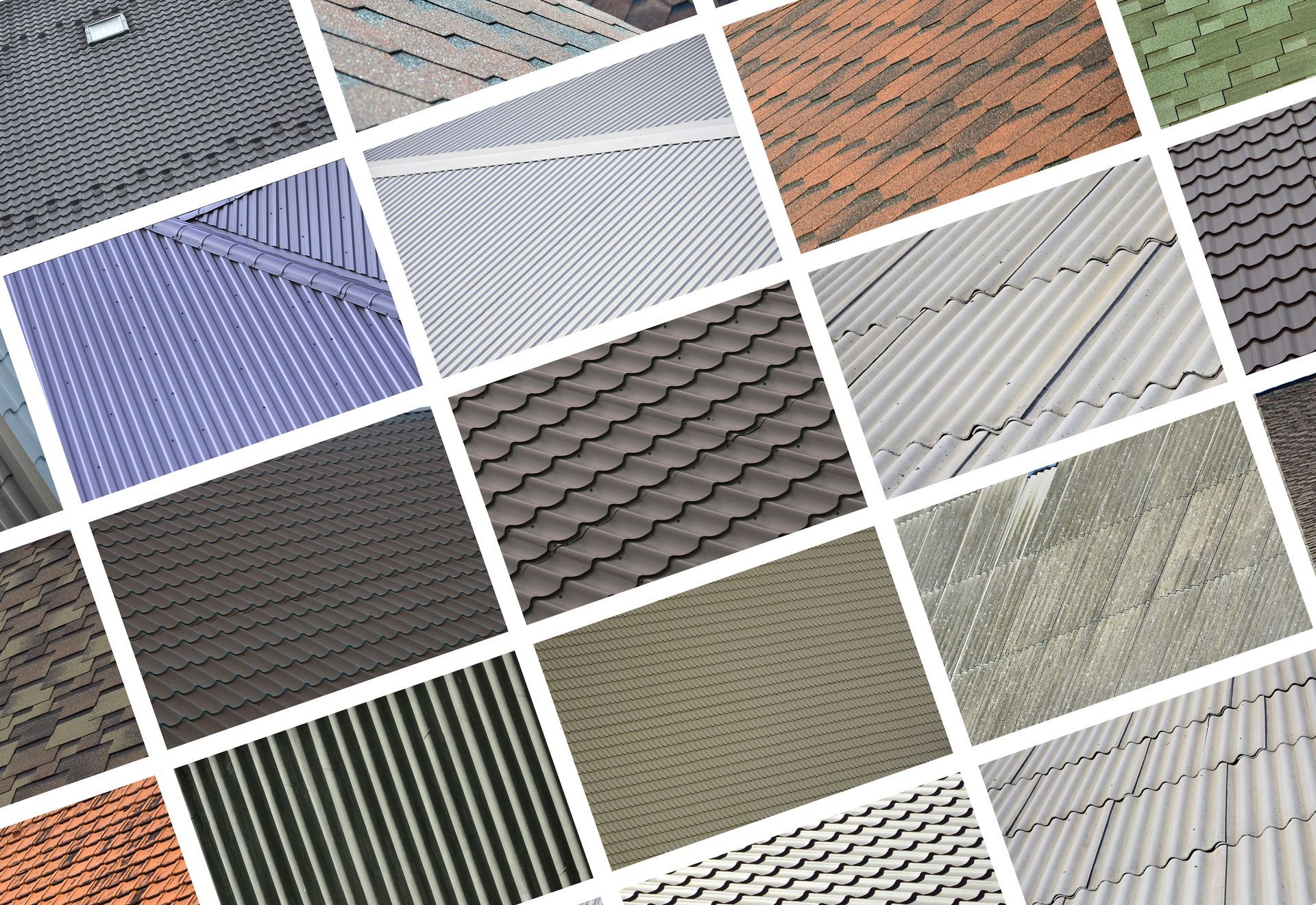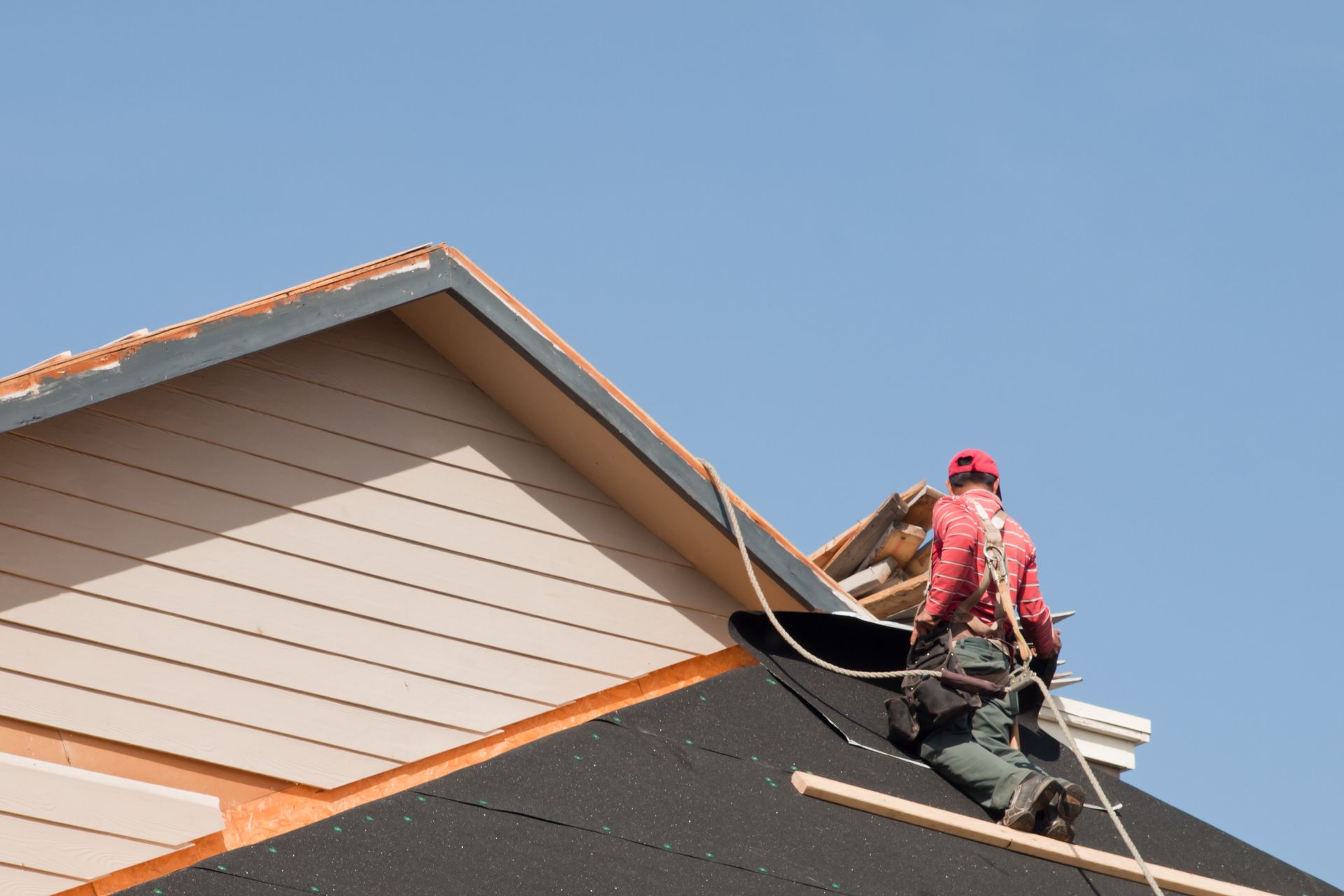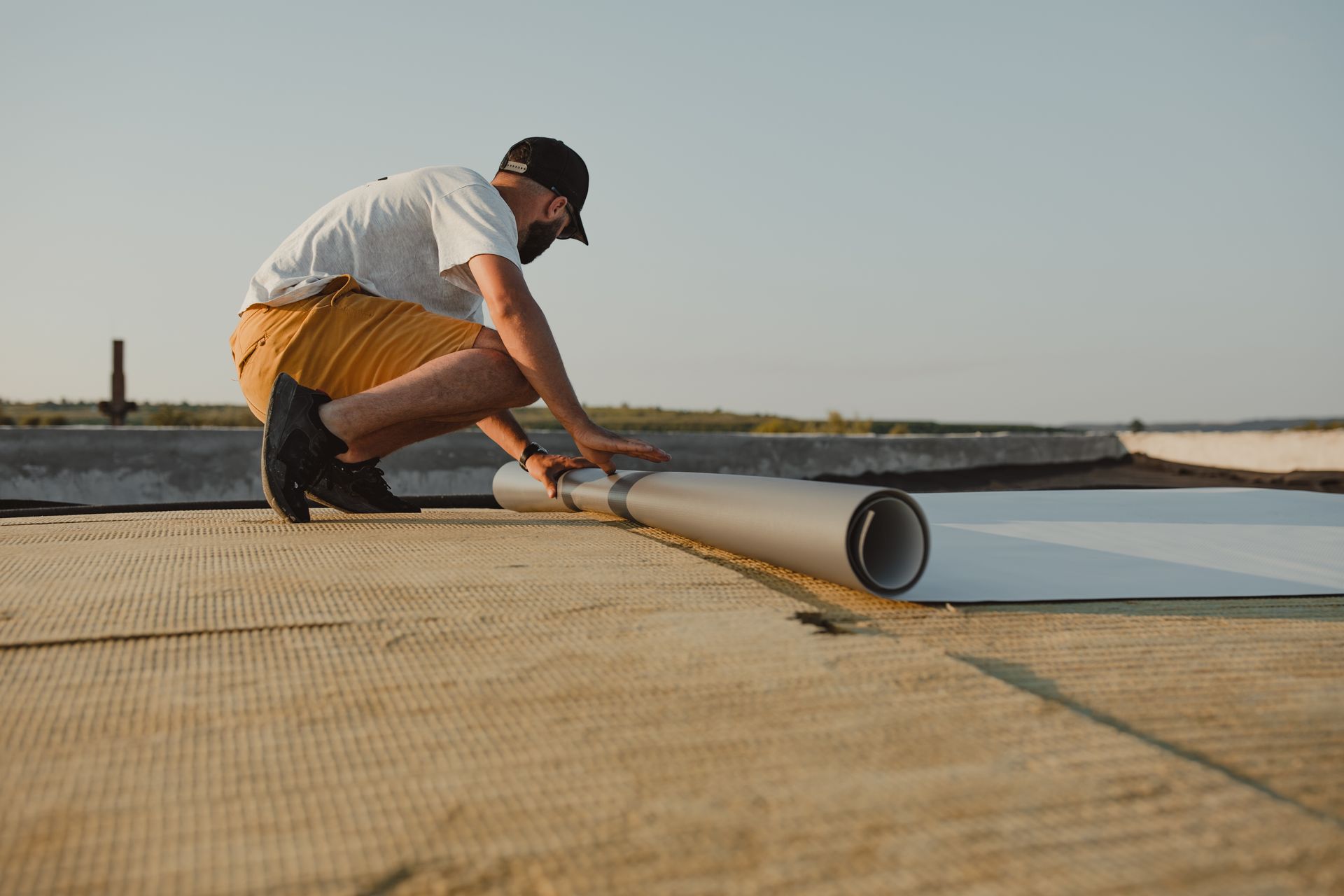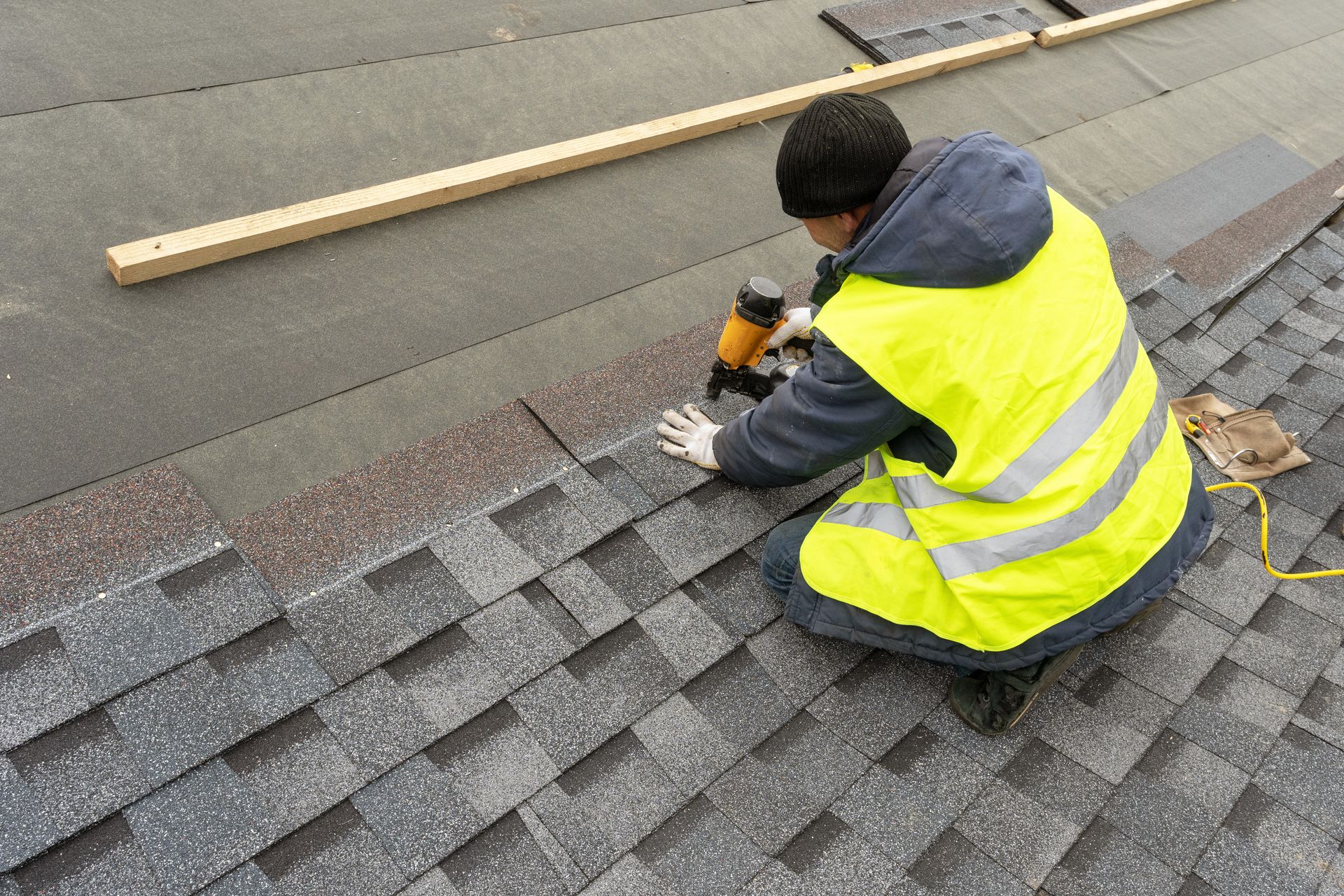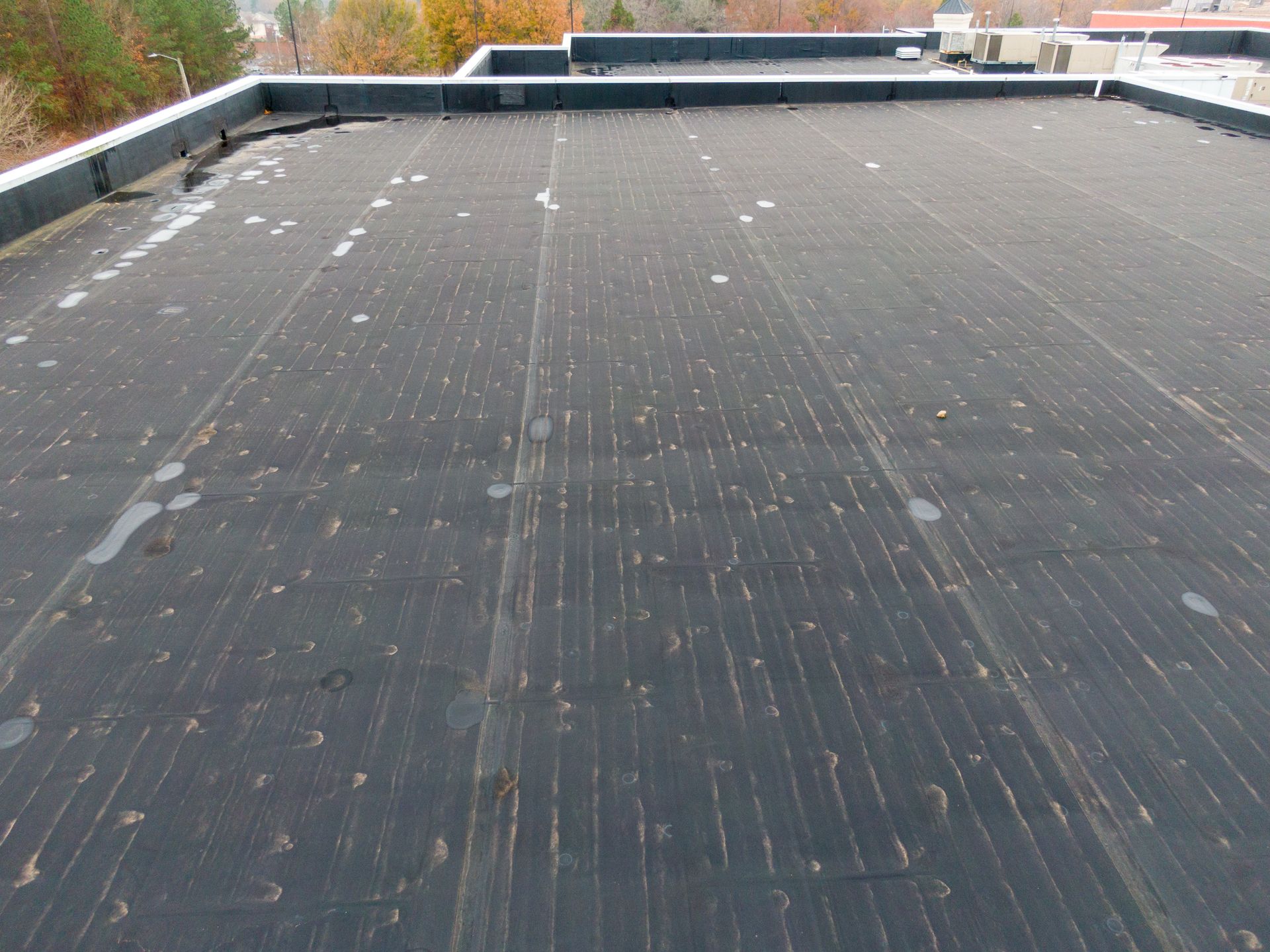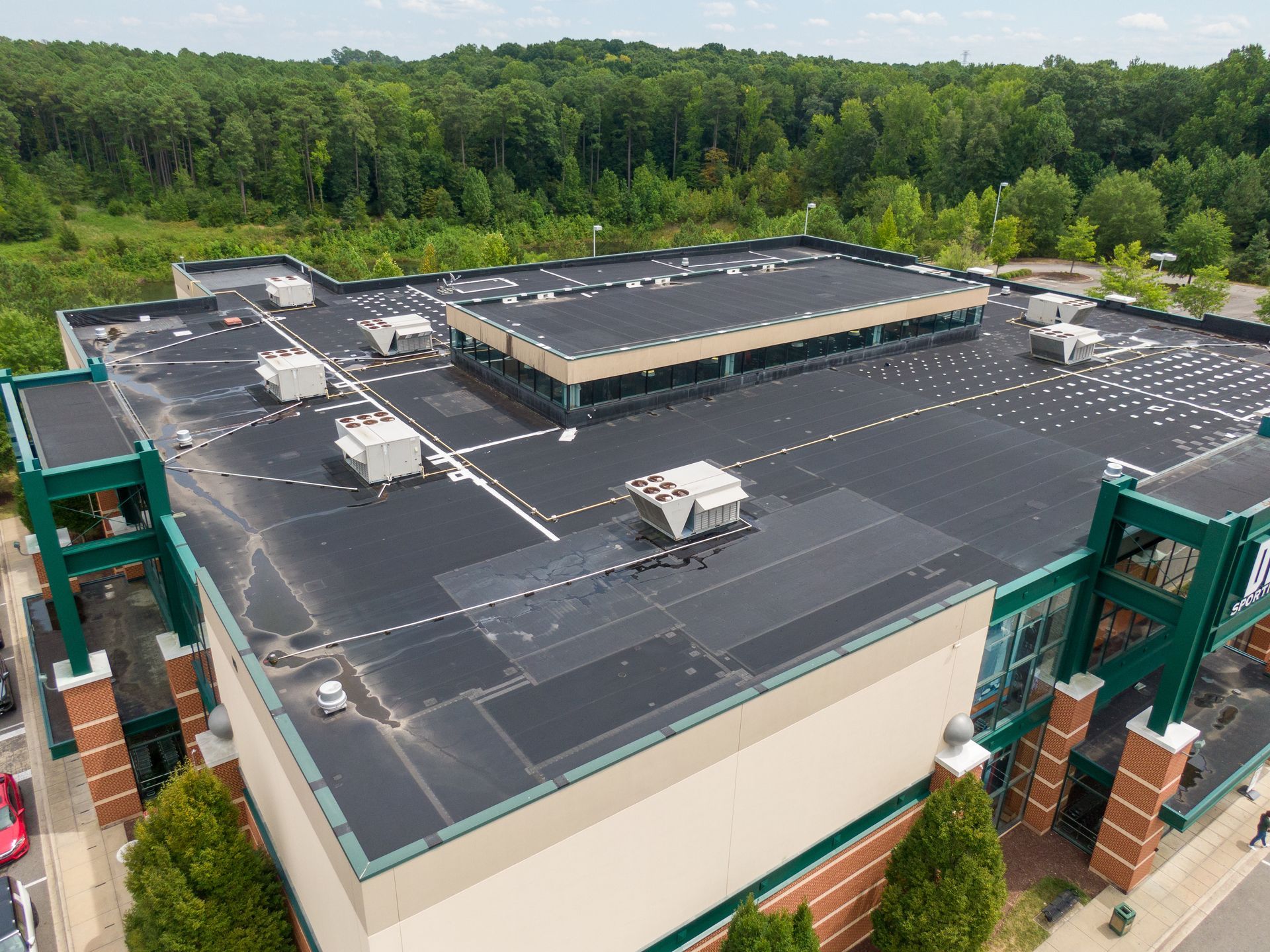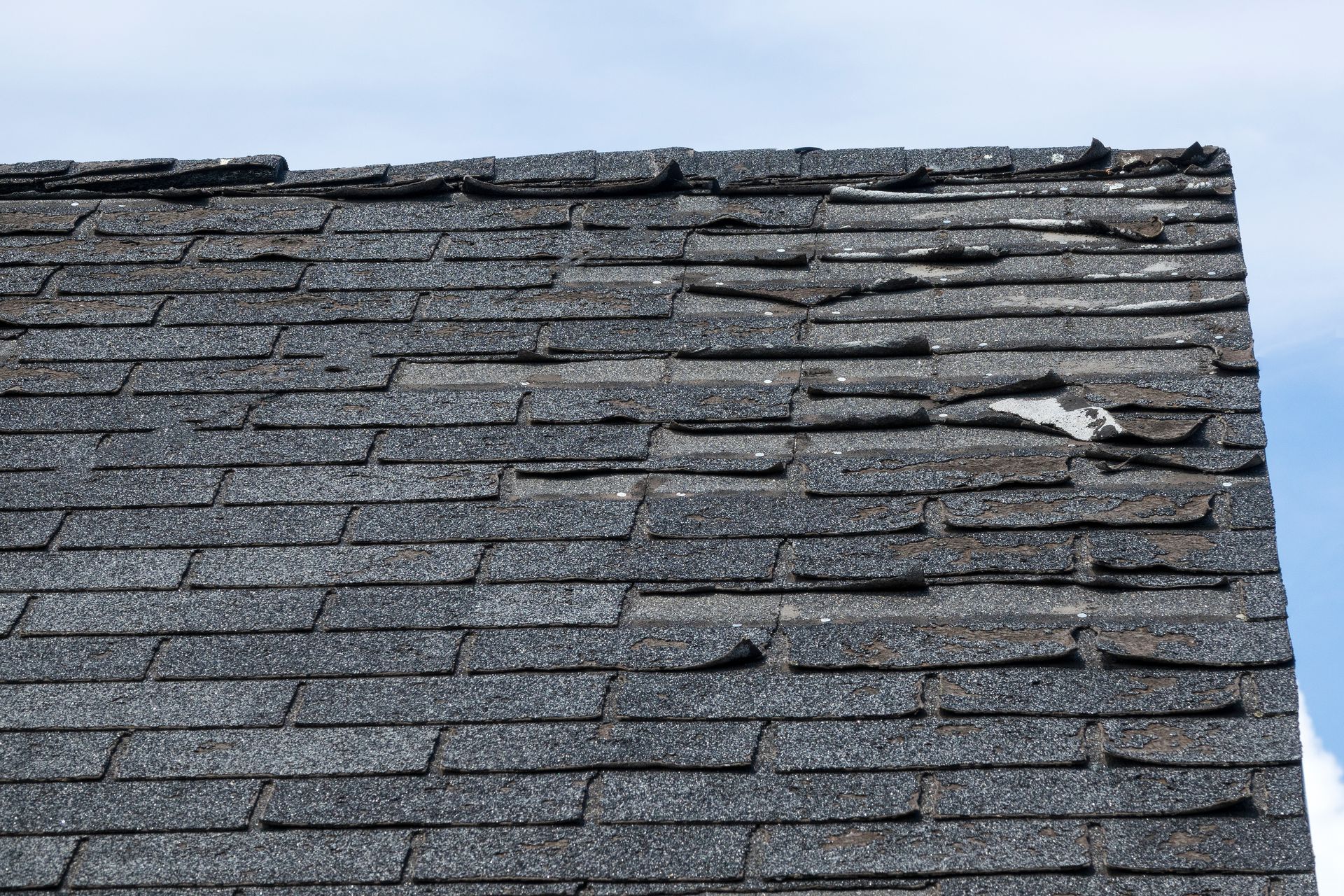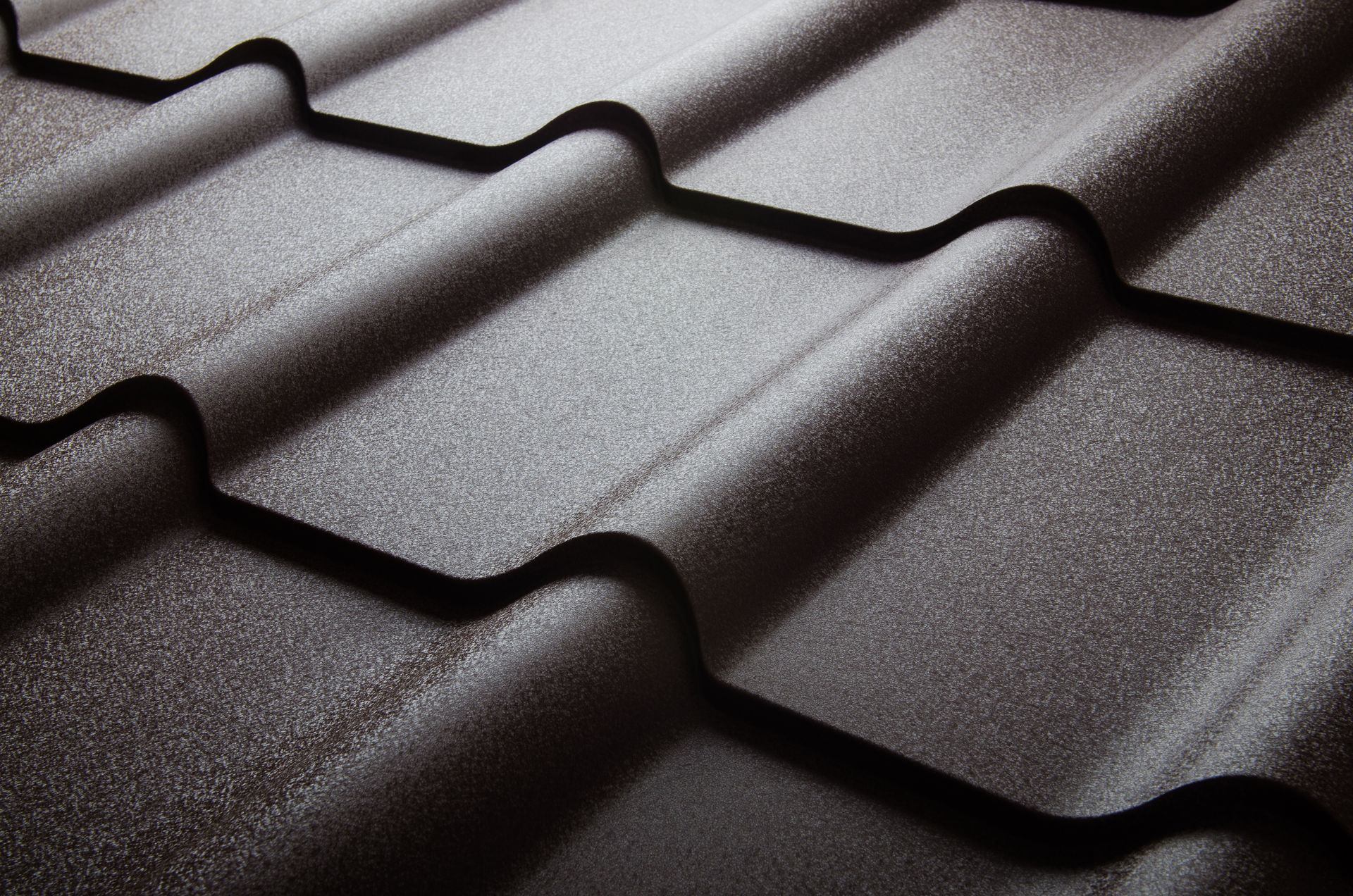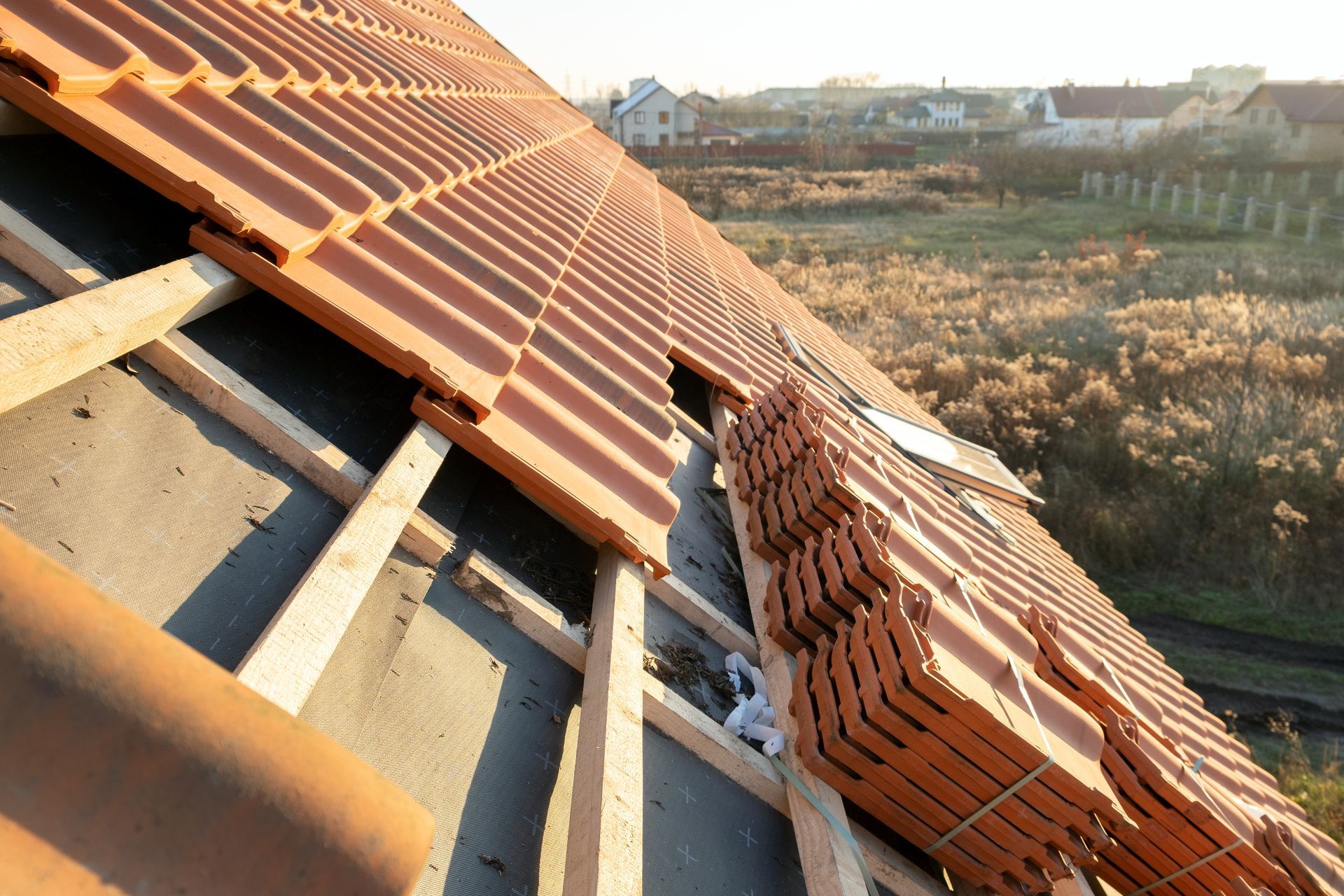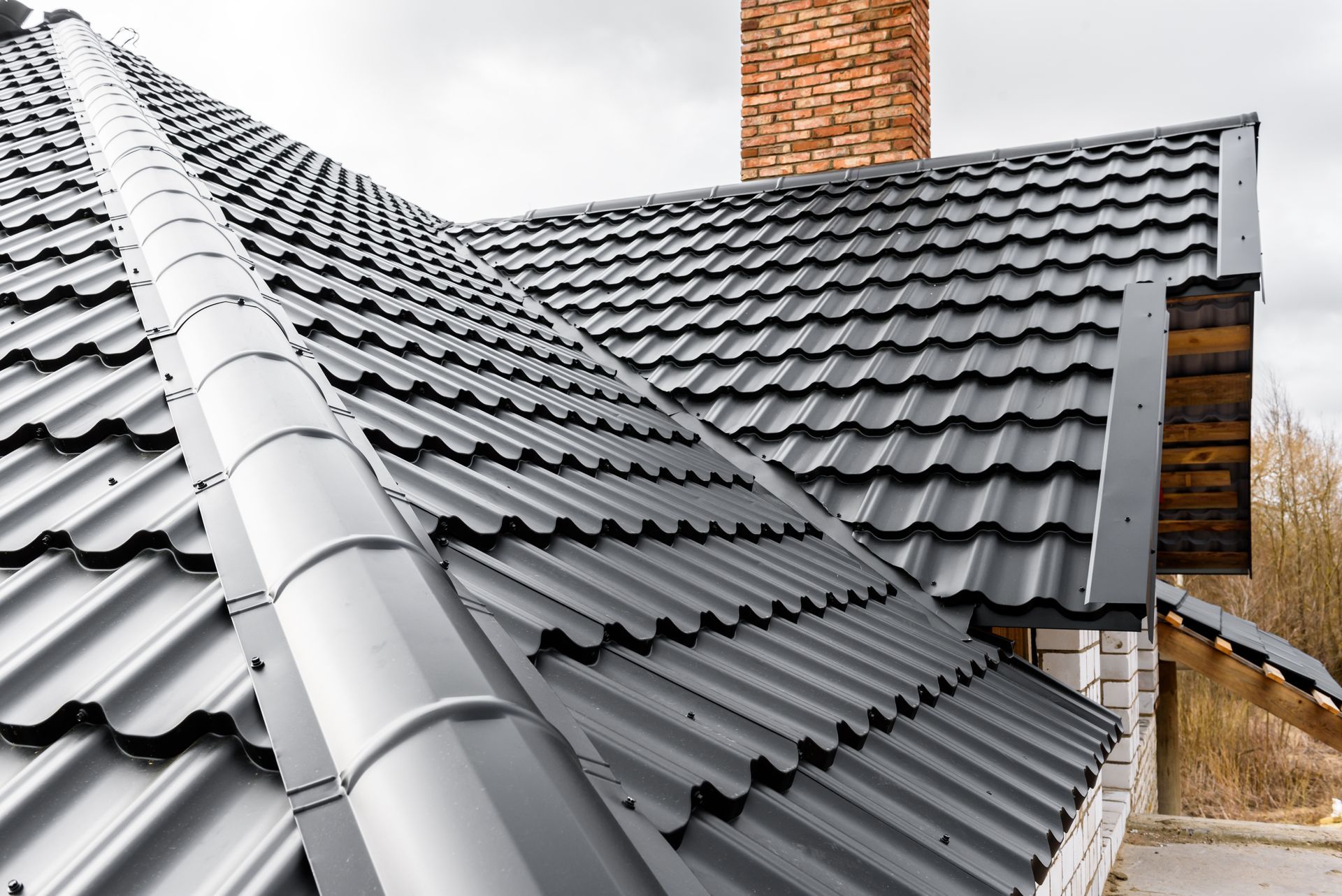Residential & Commercial Roofing Excellence Since 1973 | Schedule a FREE Roof Inspection & Estimate
(817) 249-3338
What Is the Difference Between EPDM and PVC Roofing?
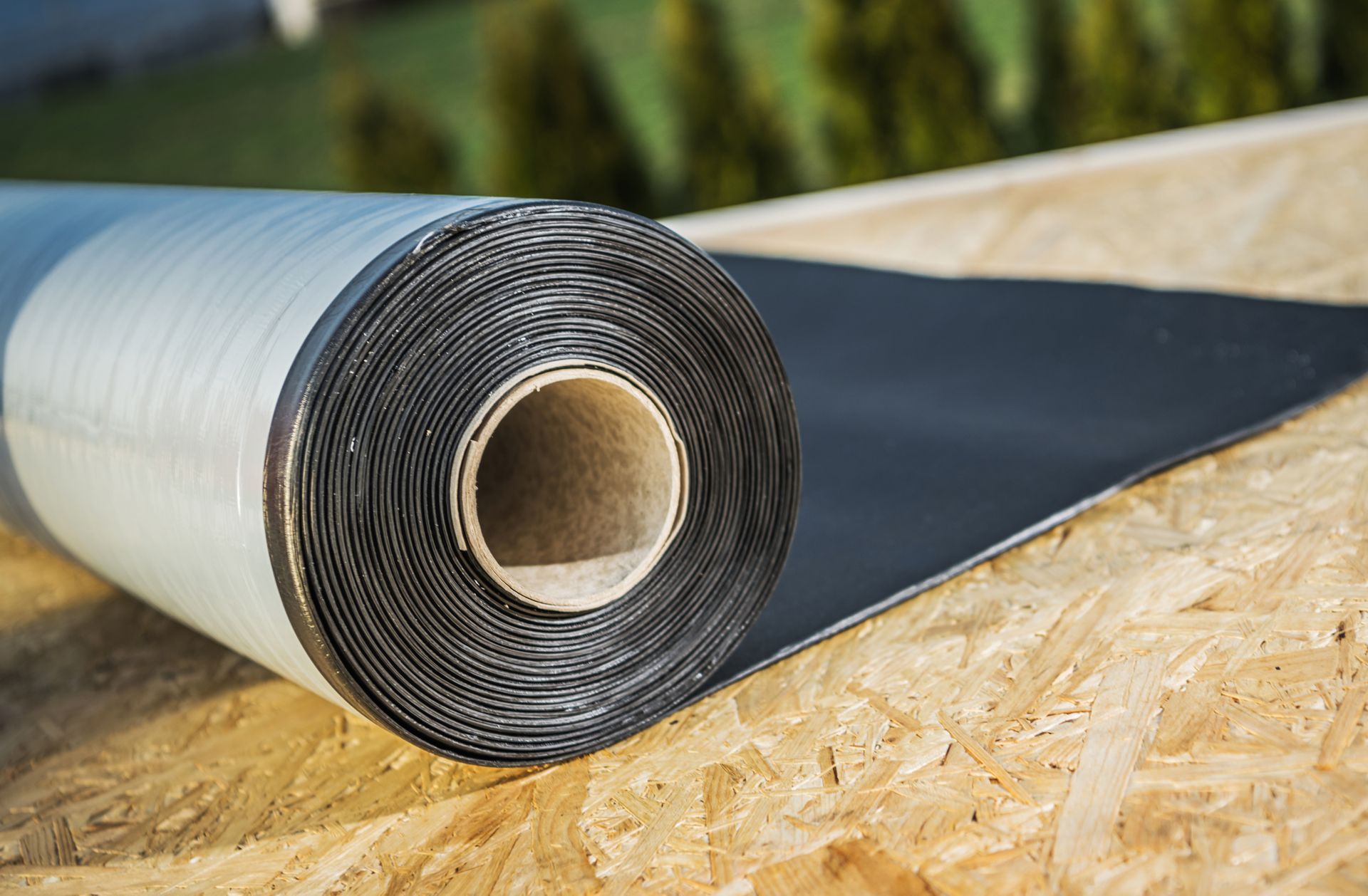
Whether you’re beginning construction on a new industrial building or simply replacing your existing roof, one of the biggest questions you’ll be asking yourself is whether you should go for Ethylene Propylene Diene Monomer (EPDM) or Polyvinyl Chloride (PVC) roofing. Because commercial roofs are often flatter than residential roofs – if not completely flat – the risk of pooling water and water seepage is of particular concern for commercial and industrial properties. Increased foot traffic on commercial roofs can also increase the risk for punctures and other damage, making durability a higher concern.
While EPDM and PVC both have their benefits, which one will work best for you and your property will depend on a few individual factors. At Billy Harris Roofing in the Dallas–Fort Worth Metroplex, we customize our roofing services to suit business owners’ needs and preferences and will work with you one-on-one to find the ideal solution for your structure’s roof.
What Is EPDM Roofing?
EPDM (Ethylene Propylene Diene Terpolymer) is a synthetic rubber known for being sturdy and cost-effective. It’s installed in large, single-ply sheets with an adhesive that provides a seamless barrier for increased protection against water infiltration – all at a significantly lower price compared to other commercial roofing materials.
Its rubber composition also imbues it with enhanced weather resistance properties, making it more durable to extreme heat and heavy rain as well as UV radiation (if in a lighter color), which can help prevent accelerated aging and degradation. With proper maintenance from qualified roofing professionals, EPDM roofs can last up to 25 years.
What Is PVC Roofing?
PVC (Polyvinyl Chloride) roofing, made from thermoplastic polymer, is a popular choice for commercial as well as residential properties with flat roof sections. PVC has more flexibility than EPDM and is able to adapt to a building’s unique roof shape without cracking or splitting.
Essentially, PVC can do everything EPDM can do and more – including superior durability – but at a higher price. PVC roofing is installed in sheets like EPDM, but instead of using plaster, the membranes are welded together to create a stronger watertight seal. It also offers excellent protection against hail damage as well as heat gain resistance, contributing to lower utility costs for business owners. With routine maintenance, PVC roofs can last upwards of 30 years or more, performing optimally longer than EPDM.
However, due to its extensive weather-resistant properties, PVC costs significantly more per square foot, is typically more expensive to repair and requires a total roof overhaul to replace and install.
Should I Use EPDM or PVC Roofing?
Whether EPDM or PVC roofing will be the ideal material for you will depend on numerous factors, from your budget to your preferred roof properties. These also aren’t the only commercial roofing material options, with others like TPO and modified bitumen roofing providing significant advantages in certain circumstances.
TPO, which is typically white and highly reflective, can offer enhanced energy savings during the summer in places with hot climates, like DFW. The heat-welded seams of TPO create a stronger bond than those found in the average EPDM roof, creating a monolithic layer that’s much more resistant to leaks. This is particularly vital for reliable draining on flat commercial roofs and those with low slopes.
TPO can also provide better chemical resistance compared to EPDM, especially to oils and animal fats, making it a popular roofing material for commercial structures that house restaurants or biochemical industrial facilities.
Modified bitumen boasts exceptional tensile strength thanks to polyester fiber matting and fiberglass reinforcement, making it a great choice for commercial roofs with high foot traffic. It’s also a valuable attribute for roofs subjected to significant mechanical stresses. Modified bitumen also does well in extreme cold temperatures, which can be a beneficial attribute during the coldest parts of the DFW winter.
The licensed and insured crew at Billy Harris Roofing has the experience and expertise to maintain your commercial roofing effectively. We’ll inspect for seam punctures, compromised membrane durability and interior water leaks and make any necessary repairs or replacements promptly to ensure your investment can continue to perform optimally, without costing you a fortune, for the foreseeable future.
Hire a Local, Veteran-Owned Roofer That’s Been Maintaining Commercial Roofs in DFW for More Than Half a Century
At Billy Harris Roofing, we’ve been a staple of the Northern Texas community for over 50 years – 30 of which have been spent with the same crew of licensed and insured roofers. Business owners can trust that we’ll exceed their expectations with customer-focused and tailored services and a five-year workmanship warranty to assure them that our results are long-lasting.
Learn more about our roofing services and receive a free estimate today by calling (817) 249-3338.

Experience the billy harris roofing way Today
Reputation matters in the roofing industry. Work with a company that has been building lasting relationships with satisfied repeat customers for more than 50 years. Call us today at
(817) 249-3338.
RESIDENTIAL SERVICES
COMMERCIAL SERVICES
locations
7531 Benbrook Pkwy
Benbrook, TX 76126
(817) 249-3338
(972) 369-7287
hours
- Mon - Fri
- -
- Sat - Sun
- Closed
All Rights Reserved | Billy Harris Roofing
Privacy Policy | Powered by REV77 Digital Marketing

